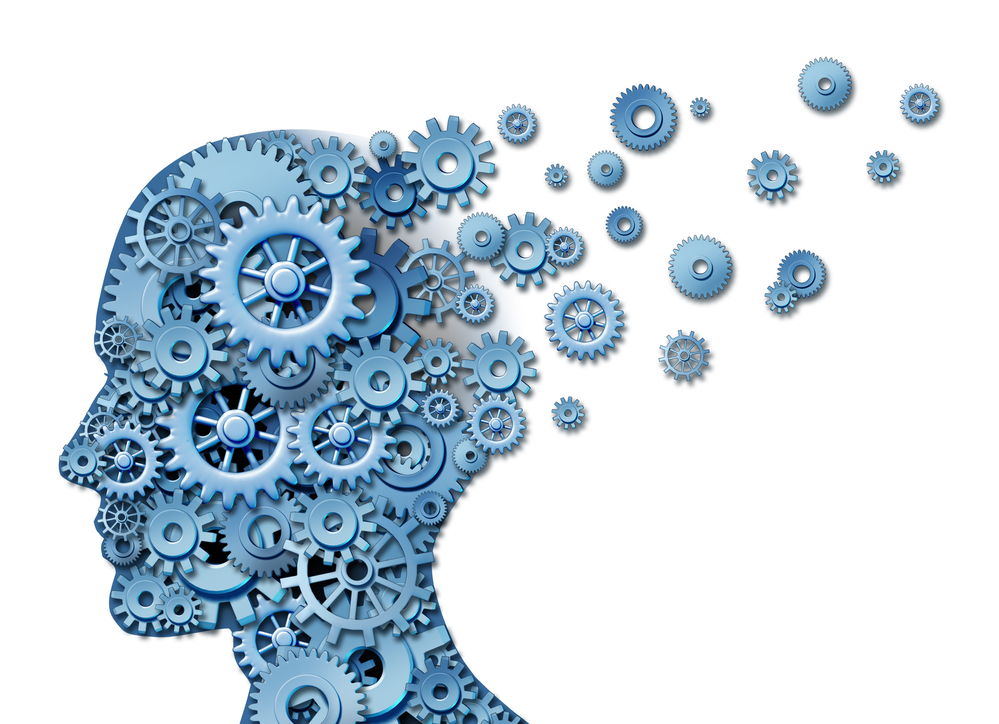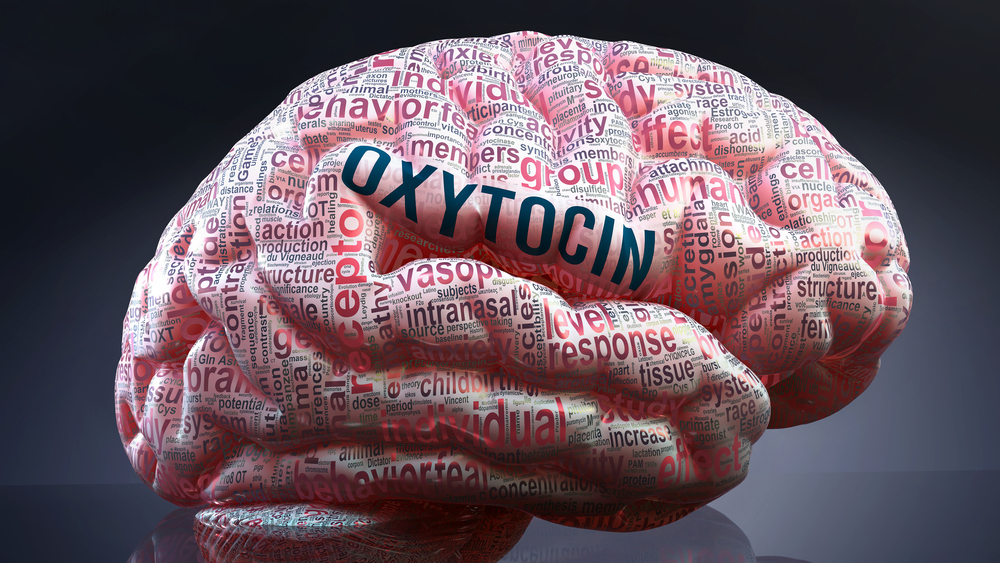Can a Man Forget a Woman He Slept With? Unraveling Memory and Emotion
 Memory is a complex process, and the experiences one holds on to can be influenced by many factors, from emotional connections to the significance of events. When it comes to relationships and intimate encounters, the question of whether a man can forget a woman he's been with is layered with personal and psychological elements. Consider […]
Memory is a complex process, and the experiences one holds on to can be influenced by many factors, from emotional connections to the significance of events. When it comes to relationships and intimate encounters, the question of whether a man can forget a woman he's been with is layered with personal and psychological elements. Consider […]Memory is a complex process, and the experiences one holds on to can be influenced by many factors, from emotional connections to the significance of events. When it comes to relationships and intimate encounters, the question of whether a man can forget a woman he's been with is layered with personal and psychological elements. Consider this: memories are stored, interpreted, and recontextualized over time.
This is not to say that all intimate experiences are unforgettable. You, like everyone, have a mental archive that's curated unconsciously. Specific memories fade while others stick around, depending on their emotional weight and the meaning you ascribe to them. For a man, forgetting a woman with whom he's shared an intimate moment could be straightforward if the encounter held little significance beyond the physical. However, if there's a deeper connection, it might not be as simple.
What remains tucked away in the recesses of memory can often be unexpected. Here's a key takeaway: it's not just about the ability to forget but also the subconscious choice of what stays and recedes into the background. The nature of the relationship, the intensity of the encounter, and the personal emotions involved all play roles in this intricate dance of recollection.
 Understanding Human Memory
Understanding Human Memory
Human memory is a complex phenomenon involving processes that allow you to store and recall information. It's a singular process and dance of intricate steps within the brain involving specific regions and functions. It’s essential to understand how memory encoding and retrieval contribute to the capacity to remember experiences.
Brain and Memory Encoding
The brain is akin to a vast and dynamic storage system where memories are formed through encoding. This process involves converting information from your environment into a construct that can be stored within the brain. Two critical regions involved here are:
- Hippocampus: Vital for the formation of new memories.
- Amygdala: Especially active when you're encoding emotional memories.
During encoding, various sensory inputs are linked with environmental cues. Here’s how it works:
- Encoding by Association: When encountering something new, your brain connects it with existing knowledge and experiences.
- Emotional Encoding: Memories tied to strong emotions, often facilitated by the amygdala, can be more vivid and easier to recall.
Key Takeaway: Your brain encodes memories by intricately intertwining them with your senses, experiences, and emotions.
Memory Retrieval Process
Retrieval is recalling the encoded information from the complex web of storage in the brain. This isn't always straightforward; sometimes memories can be elusive. Various factors can influence the retrieval process:
- Context: Environmental cues during the encoding phase can trigger memory recollection when reencountered.
- Frequency and Recency: Memories you think about often or have been created recently are more accessible.
- State-Dependent Recall: When encoding the memory, your state of being (emotionally or physically) can impact your ability to recall it under similar or different states.
Retrieval usually involves the following steps:
- Search for cues or triggers.
- Engage brain regions like the hippocampus and cortex.
- Locate and pull forth the memory into conscious thought.
Key Takeaway: To boost your ability to retrieve memories, try recreating the context in which they were formed or frequently revisiting them mentally to keep them fresh.
Psychological Factors of Memory
In discussing the psychology of memory, it's crucial to understand how emotional experiences and intentional forgetting play roles in what we recall.
Emotional Experiences and Recollection
When you experience something profound or intense, your emotions can become strongly linked with the memory of that event. The recollection of someone you've been intimate with often involves an intricate web of emotions and memories.
- Emotional Connections and Depth: The depth of the emotional connection during an encounter amplifies your ability to remember it. Powerful emotions can create lasting memories.
- Emotional Baggage and Ties: Sometimes, the aftermath of an encounter adds emotional baggage, reinforcing the memory and making it more difficult to forget.
Key Takeaway: The more substantial your emotional experience with someone, the more likely this memory will cling to the forefront of your mind.
Repression and Suppression
Memory isn't just about what you remember; it's also about what you choose to forget or what your subconscious hides.
- Repression: This is when you unconsciously block a memory, often because it's tied to distress or trauma. It’s your mind’s way of protecting you from emotional distress.
- Suppression: Unlike repression, suppression is a conscious effort to push memories out of your awareness. It can be considered a coping mechanism to deal with uncomfortable emotional ties.
Key Takeaway: You might intentionally or unintentionally forget a sexual encounter to protect your emotional well-being, either by pushing the memory out of your focus or by your mind doing it for you behind the scenes.
 Impacts of Intimacy on Memory
Impacts of Intimacy on Memory
When you experience an intimate encounter, the emotional and physical closeness can profoundly influence your memory, often through hormones like oxytocin.
Role of Oxytocin in Intimate Encounters
Oxytocin, called the "love hormone," is crucial in forming emotional attachments during intimate encounters. When you engage in physical intimacy, your brain releases oxytocin, heightening the sense of closeness and emotional attachment to the person you're with. This hormone surge is not just about warmth and fuzziness; it's a critical component in the bonding process.
- Release During Intimacy: During an intimate encounter, oxytocin levels spike, potentially leading to a stronger sense of attachment.
- Memory Association: The presence of oxytocin during intimate moments can make these memories more salient in your mind.
Oxytocin doesn't work alone; it interacts with other neurotransmitters like dopamine, which is associated with the pleasure pathway, and this combination can enhance the memorability of an intimate moment. However, the strength of memory also depends on the level of attraction you feel and the overall emotional impact of the encounter.
Your emotional response to intimacy can vary widely. Some moments may be forgotten quickly, while others linger in your memory, reinforced by the emotional significance and the hormonal cocktail released during the encounter. Understanding the role oxytocin plays gives you a window into why specific intimate experiences with someone are memorable while others may fade.
Key Takeaway: Every intimate moment is a complex dance of emotions and hormones like oxytocin, which can turn fleeting encounters into lasting memories.
Social and Emotional Attachments
Regarding romantic encounters, intertwining social and emotional attachments can be complex and significant. These attachments can profoundly influence one's memories and feelings toward a partner, even after a single encounter.
Significance of Emotional Attachment
Emotional attachment is the bond that connects you to another person through feelings of affection, love, and care. This attachment can develop quickly, even from a single encounter, because of the following:
- Intensity of the experience: Physical intimacy can catalyze solid emotional bonds.
- Interaction quality: Genuine, empathetic connections can foster deeper feelings.
- Vulnerability sharing: Intimacy often involves emotional risk, which can enhance attachment.
Key Takeaway: A strong emotional attachment might arise even from a brief romantic connection, potentially influencing future thoughts and feelings.
Challenges of Emotional Detachment
Achieving emotional detachment after intimacy isn't simply a matter of decision; it can be quite challenging due to:
- The memory of the connection: Moments shared can create lasting memories, influencing emotional ties.
- Empathetic responses: Your natural empathy can forge deeper emotional links, making detachment harder.
- The narcissist factor: If involved with a narcissist, manipulative behaviors may hinder the detachment process.
Resolving emotional attachment involves:
- Acknowledging your feelings without judgment.
- Establishing healthy boundaries for yourself.
- Seeking support from friends or professionals, if necessary.
Key Takeaway: Emotional detachment often requires conscious effort and self-awareness to navigate the complex aftermath of intimate encounters.

The Nature of Forgetting
When it comes to memories, particularly those involving other people, your mind has its unique way of processing and potentially forgetting these experiences.
How Forgetting Occurs
Your brain is like a vast library, but even the best librarians might misplace a book or two. Forgetting a person, such as a woman a man once slept with, doesn't mean the memory vanishes instantly—it often fades with time. Here's how your brain might go about this:
- Encoding Failure: Sometimes, the brain doesn't store memory effectively. The details might blur if the encounter didn't make a significant impact.
- Retrieval Failure: Imagine searching for a file on a cluttered computer. It's there, but you can't locate it. Over time, or without repeated recall, specific memories become more challenging to access.
- Interference: New experiences can overlap with old ones. Meeting new people could overshadow memories of past partners.
Key Takeaway: Forgetting can be more about details getting lost in the shuffle rather than erasing memories.
Bad Memory Versus Emotional Coping
Not all forgetting is due to a bad memory. Sometimes, forgetting is part of how you cope with experiences. Let's break it down:
- Bad Memory: Being forgetful can be a matter of brain chemistry or health—some people recall less vividly than others. It's like forgetting where you put your keys; it doesn't mean much emotionally.
- Emotional Coping: Alternatively, forgetting a woman could be an emotional response. If a memory is painful or regretful, your mind might protect you by making it less accessible.
- Consciously or subconsciously pushing a memory away as a protective measure.
- Focusing on the present and future events creates less mental space for memories.
Key Takeaway: Whether it’s a glitch in your memory storage or a survival strategy, forgetting can serve different purposes in your emotional life.
Men's Perspectives on Relationships
In understanding men's relationships, it's essential to recognize the diversity in how men process their connections and personal growth. Every experience can shape a man's view on relationships, whether it involves multiple partners or commitments.
It's a different relational dynamic when you're involved with multiple partners. Here are a couple of things to consider:
- Establishing Boundaries: In open relationships or when playing the field, clear boundaries are crucial to ensure all parties are on the same page.
- Communication: You need to have honest conversations about expectations to prevent misunderstandings.
Key Takeaway: Navigating relationships with multiple partners requires clear communication and well-defined boundaries.
Individual Differences in Men
Not every man is the same, and individual differences can significantly affect relationship experiences:
- Memory and Emotional Attachment: The idea of a man forgetting a woman he's been with is subjective. While some may move on quickly, others may hold onto the memory due to deeper emotional connections.
- Personality Types: A 'player' might thrive in casual scenarios, while others may seek deeper commitment. This can reflect their stage in personal growth and what they value in relationships.
Key Takeaway: Individual differences among men mean that their memories and approach to relationships are as unique as they are.
Factors Influencing Memory of an Encounter
Multiple factors affect how vividly you remember the details when recalling an encounter. Some of these pivotal factors are your attention during the event, any substance use, and the emotional weight it carries for you.
Substance Use and Memory Gaps
Substance use, particularly during encounters, can significantly hinder your ability to remember details. For instance:
- If you're too drunk or under the influence of other substances, the likelihood of memory gaps increases.
- Substance abuse can result in blackouts, where memories of the event are not formed correctly or at all.
Key takeaway: Stay aware of how alcohol and drugs can affect your memory, as they may lead to significant gaps in recollection.
Significance of Closure and Mindfulness
Reflecting on the emotional aspects:
- Closure is essential for some individuals. Without it, you may find specific memories replaying, seeking a resolution.
- Practicing mindfulness allows you to live in the moment and give full attention to an encounter, often leading to clearer memories.
Concerning emotional factors:
- Feelings of guilt or a lack of empathy can alter how you remember an event, either by enhancing the memory or causing you to suppress it.
- Focusing your attention during an encounter, without distractions, helps form stronger memories.
Key takeaway: Engage emotionally and be fully present during essential moments to better retain those memories for future reflection.
Emotional Processing after an Encounter
It's common to experience a range of emotions after a sexual encounter. You may feel happy, confused, or uneasy as you reflect on the experience. This section will discuss the emotions you may face, especially when dealing with regret and shame, and how your personal experiences can shape your memory of the event.
Dealing with Regret and Shame
- Regret can manifest if the encounter doesn't align with your values or expectations. A natural reaction signals a mismatch between your actions and sense of self.
- Identify what's causing the regret: Is it the choice of partner, the timing, or feeling coerced?
- Manage feelings constructively: Use self-reflection to understand your emotions and grow from the experience.
- Shame, however, is tied to how you perceive yourself after the encounter. Shame can be pervasive, affecting your sense of self-worth and emotional well-being.
- Recognize that sex is a personal choice, and shame is often rooted in societal judgments.
- Practice self-compassion: Remind yourself that everyone makes decisions they sometimes second-guess.
Key Takeaway: Acknowledge your feelings, whether they're regret or shame. Use coping strategies such as self-reflection to move towards healing and understanding.
Personal Experiences and Memory
- Personal experiences are at the heart of how you interpret and recall any event, including sexual encounters.
- Your emotional state at the time can color memories: A positive mood might render a more favorable recollection.
- Subsequent experiences can influence how you remember the encounter: New information or perspectives can alter your original memory.
- Memory isn't static; it's shaped by current emotions and events, even if the encounter was in the past.
- Reflect on how your memories might have changed over time: What details have intensified or faded?
- Consider the context: Your memory may exclude the nuances of the situation, simplifying the experience.
Key Takeaway: Your emotional experiences play a massive role in how you remember the encounter. Give yourself grace, as memories can change with time and added perspective.
Breakups and Moving On
After a relationship ends, you might feel a cocktail of emotions, with heartache at the forefront. How you navigate this tricky time can set the tone for your growth journey.
The Journey of Personal Growth Post Breakup
Enduring a breakup can leave you feeling heartbroken, but it's also an opportunity for immense personal growth. You're unique, and how you process this change will depend on individual differences and external factors such as your support system and life circumstances.
- Recognize Individual Differences: Everyone heals differently, so don't compare your healing process to others.
- Tackle External Factors: Seek support from friends and family, which can significantly impact your recovery journey.
Memories of your ex-partner might be distorted, sometimes nostalgically colored, making moving on seem like an uphill battle.
- Accept Distorted Memories: Acknowledge that your recollection might magnify the good times, masking the issues that led to the breakup.
Emotional baggage doesn't disappear overnight. It's a gradual process that requires active coping strategies to decrease weight.
- Address Emotional Baggage: Focus on enjoyable activities and consider professional help if the baggage feels too heavy to lift alone.
Personal growth often involves developing new coping strategies to manage the complex feelings post-breakup.
- Develop Coping Strategies: Whether journaling, physical activity, or creative expression, find what works for you and stick with it.
Key Takeaway: Healing is not linear, and being patient with yourself is vital. Embrace this period of personal growth, and you will emerge stronger and more self-aware on the other side.
Special Cases and Exceptions
Certain un-cut and dried situations emerge when diving into human memory and relationships. These cases can challenge the norm and reveal surprising facets of how memories, especially intimate ones, are formed and retained. Let's explore how unique mental health conditions and unconventional scenarios like catfishing can influence one's ability to remember or forget a past romantic encounter.
Impact of Mental Health on Memory
Your mental health plays a pivotal role in processing and recalling experiences. Memory can be notably affected by amnesia, where recall of past events could be entirely lost or partially impaired. Likewise, a person with certain narcissistic traits may have a skewed perception of past events, inclining them to remember or disown experiences to fit their narrative.
- Amnesia: Disrupts recalling, sometimes resulting in forgetting a woman he has slept with.
- Narcissism: This might lead to selective memory, remembering experiences that inflate self-esteem.
Key Takeaway: Mental health conditions can significantly alter memory retention, both involuntary, as in amnesia, or selectively, in the case of narcissism.
Unique Scenarios: Catfishing and Mystery
In an age where digital identities are common, catfishing has emerged as a phenomenon that disrupts typical societal norms of relationships. If a man has been duped by a catfish, the memory of the woman he believes he's slept with can be a complex mix of fact and fiction, often overlaid with feelings of betrayal once the deceit is uncovered.
- Catfishing: Fake identities can cause emotional turmoil, blurring the memory of the supposed encounter.
- Mystery: An unexpected or unexplainable situation, such as a romantic encounter shrouded in mystery, might leave a more lasting imprint on the memory due to its novel or unresolved nature.
Key Takeaway: Situations that deviate from the norm, like catfishing or mysterious encounters, can create powerful memories that are less likely to be forgotten.
Frequently Asked Questions
The intricacies of human connections and memories often raise questions about lingering thoughts and feelings after intimate experiences. These FAQs dive into the nuances of such emotional landscapes.
What are signs that he's not moving on from you?
If he keeps reaching out, reminisces about past moments frequently, or seems to show interest in your current life, it's likely he hasn't moved on. His actions convey a lingering presence in his thoughts.
Key takeaway: Persistent communication and interest might indicate he's holding on to the connection.
Is it possible for a guy to lose attraction after being intimate?
Yes, sometimes intimacy doesn't align with expectations, and a man can feel a shift in his attraction. It could be due to an emotional disconnect or a revelation that the chemistry isn't as strong as anticipated.
Key takeaway: Attraction can wane post-intimacy if the experience doesn't meet emotional or physical expectations.
What might cause a man to continually think about a woman after a long period?
A unique bond, profound intimacy, or shared experiences that left a deep impression could cause a man to think about a woman for years. Significant milestones or life changes could also trigger memories.
Key takeaway: Deep connections and shared life events often spark last thoughts.
How can you tell if you've made a lasting impression on someone?
You've made a lasting impression if the person brings you up in conversations, values your opinions, or tries to keep you in their life. It shows you've significantly touched their heart or mind.
Key takeaway: The frequency of mentions and efforts to remain connected often signal a lasting impression.
Do feelings fade away when you haven't seen your crush for a while?
In some cases, absence can diminish feelings as life moves forward and new experiences fill the space. But, sometimes, distance makes the heart grow fonder, escalating the longing and affection instead.
Key takeaway: Feelings can either fade or intensify with distance, based on individual emotional responses.
What typically leads to someone being unforgettable to a partner, even after marriage?
Strong emotional connections, shared values, and memorable experiences forge an indelible mark. Being supportive in distress or being one's pillar of strength could also play a significant role.
Key takeaway: Unforgettable partners often deeply resonate emotionally and spiritually.

